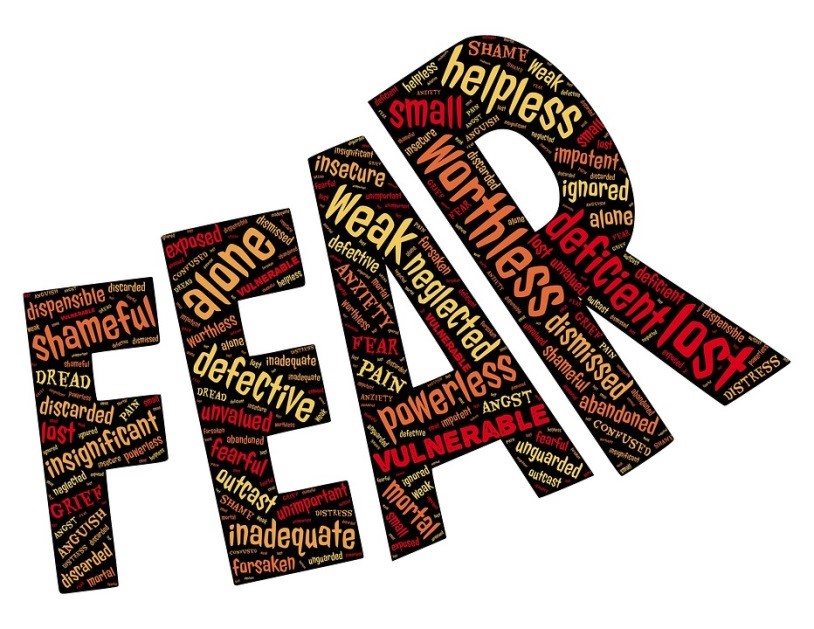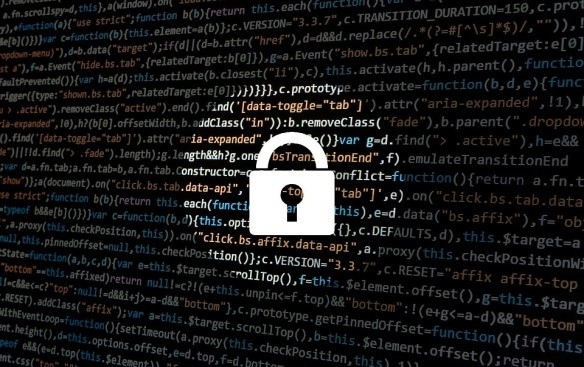Rosella Baldelli - 31.10.2017 11:58
Hier tauschen wir unsere Ideen aus! / Here we share our ideas!
sofia sorbelli - 03.12.2017 17:57
Knowing terrorism better
by Sofia Sorbelli, LSP Assisi/Italy
We all think we know what Islamic terrorism is: a radical Muslim organisation composed of people whose target is to kill as many unfaithful as possible. Are we really sure to be right? What is sure is that terrorism represents both a danger and an injustice; however, in my opinion, it is still a difficult-to-understand issue for us.
Initially, terrorism was limited to few areas of the world, conventionally in the Middle-East, but it is clear from the attacks that have shocked the world for many years that by now it has become widespread almost everywhere. Terrorism has established a climate of terror on such a scale that a lot of people have adjusted their lifestyle to a possible future attack. But is it possible that this growing danger has been fed by our lack of knowledge on the topic and therefore our inability to face it?

It is important to analyse what pushes people both to act like this on behalf of who thinks differently from them and to join this movement on such a large scale. In an article taken from “The Washington Post” the analyst of Islamist terrorism Olivier Roy explains how radicalisation is more a youth revolt, that comes from everyone’s personal desire of rebellion against society, rather than the uprising of a Muslim community victim of poverty and racism: the majority of the ones who join the movement, according to this expert, are young people, including converts who did not share the 'sufferings' of Muslims history. These rebels without a cause find in the jihad a 'noble' and global cause, and are consequently controlled by radical organisations (Al Qaeda, ISIS) with strategic purposes.
In addition, we usually ascribe terrorist attacks to a lack of control on migrants that reach our countries, without considering any other factors, such as the presence of people belonging to our nations that decide to join terrorism, by going to foreign lands to fight (foreign fighters) or by operating in their native country. In an article published in “Il Corriere della Sera”, it is explained how 80% of the, at least, 50 people who joined Islamist terrorism in 2014 in Italy were native Italians. Other two important aspects are that they were mainly recruited via Internet and that just a few of them left for Syria and then came back to Italy among asylum-seekers: all the others stayed in Italy and worked for the movement managing logistic aspects, which is even more dangerous.
Finally, we could also blame the mass media for our unawareness of terrorism. In fact, European newspapers and TV channels tend to focus on attacks that affect EU countries: this is wrong, because we get poor information on facts linked to terrorism which occur in other parts of the world, and which are often extremely violent and cruel. An example of this is the terroristic attack that took place on 24th November (just a few days ago) in the mosque of Bir al Abed in the north of Egypt, during which 305 people died and many were wounded; but the worst thing is that a group of terrorists, after having placed several bombs in the mosque, started to fire against everyone who tried to run away, as well as on ambulances which provided assistance to the injured. This has been the most bloodstained attack that took place in Egypt since 2013 (“Il Corriere della Sera”), and when our teacher asked me and my classmates about what happened, we did not have any clear idea about it.
Terrorism represents one of the main dangers of society nowadays and it is more spread everyday and therefore difficult to understand and prevent. That’s why we should all be more informed on this issue, to be ready to face it and protect our freedoms and rights.
Esbjörn Stenberg - 04.12.2017 20:45
Hier kommt unser Artikel zu diesem Thema: Media-Terrorismus!
Cyberterror
by Esbjörn Stenberg, Ali Halbastian Sardar Abdulla, VKS Växjö/Sweden
Cyberterror ist ein großes Problem, das sich für viele in unserer Gesellschaft negativ auswirkt. Er zeigt sich durch mehrere Arten, z.B. durch Virus/phishing, Terrornetzwerke im Internet und “Fake News”. Wegen des Internets verbreitet sich Cyberterror schnell und täglich werden immer mehr Leute Opfer von Cyberterror.
Dass Cyberterror eine Bedrohung für unsere Gesellschaft ist, zeigt seine Verbreitung durch verschiedene Terrornetzwerke auf Websites wie Facebook oder geschützte Kommunikation Applikationen wie Telegram. Terrororganisationen verbreiten Propaganda und schaffen somit globale Terrornetzwerke. Dies war der IS der Fall, das auf diese Weise eines der größten Terrornetzwerke der Welt zustande brachte. IS ist eine Terrororganisation, die für viele grausame Terrorattentate weltweit verantwortlich ist. Der französische Dokumentarfilm “ Soldate Allahs” beschreibt, wie die Terrornetzwerke betrieben und verbreitet werden. Der Journalist in dem Dokumentarfilm infiltriert das Netzwerk der Organisation, in dem er vorgibt, ein Sympathisant im Internet zu sein.
Terrororganisationen benutzen zum Beispiel auch: Viren, phishing und eine Technik namens DDoS. Viren können viele Formen haben, ein Beispiel ist ransomware. Im Mai 2017 wurde eine Ransomware namens WannaCry über das Internet verbreitet. Sie verschlüsselte den Computer und verlangte Geld, um die Dateien zurückzugeben. Am ersten Tag hat er ungefähr 230 000 Computer infiziert.
Eine DDoS Attacke bedeutet, dass mehrere Computer, oft in einem Botnet, zusammen Infomationen nach ein Server senden. Der größte DDos-Angriff in der Geschichte wurde letztes Jahr im Oktober gegen eine Domain-Firma namens Dyn begangen, den so genannten Dyn-Angriff. Dyn verarbeitet viele verschiedene Domain-Namen für verschiedene Websites, so dass dieser Angriff effektiv große Websites wie Twitter, Guardian, Netflix, Reddit, CNN und viele andere in Europa und den USA ausschaltet. Die Botnet-Attacke Dyn bestand aus über 100.000 IoT-Geräten wie z.B. Smart, DVDs, Kühlschränken und IP-Kameras, die mit einem Virus namens Mira infiziert waren, der in diesen IoT-Geräten ein bisher unbekanntes Sicherheits-Ganzen nutzte. Die Angriffsstärke wurde höchstens mit über 1,2 Tbps gemessen, was ausreicht, um das gesamte Internet zu verlangsamen.

die Flagge von Anonymous, eine berühmte/berüchtigte Hacker-Gruppe die oft DDoS-Angriffe verwendet
Du kannst mehr über die Dyn Attacke hier(the Guardian), hier(Wikipedia) und hier(The Hacker News) lesen. DDoS real time map
Mikaela Fors - 08.12.2017 14:06
Comment on Sofias Article about knowing terrorism better
We agree with you, that people believe they have all the information they need to understand Islamic terrorism. When in fact, media does not show all aspects of the terrorism that occur. They choose to only bring attention to terrorism that happens in the western world. This is an important topic and we think it is great that you bring it up.
Comment on Esbjörns article
Cyberterror is less common to be shown in media than other types of terrorism, therefore it is excellent that you acknowledge this topic. We found it interesting, since we earlier did not have much information about it.
Mikaela, Matilda, Sannie and Robin
josephine ficola - 12.12.2017 14:38
Cyber-Terrorism: how much do you know about it?
By Josephine Ficola, LSP Assisi/Italy
I often hear people who say that we should not welcome the migrants because they could all be potential affiliates of Isis. But what these people probably do not know is that Isis converts and recruits foreign fighters especially on the Internet through very powerful manipulative psychological techniques. However this jihadist organization does not use the web only to recruit members and spread their messages, it also makes cyber-attacks.
We all know what terrorism is but things get complicated when it comes to Cyber-Terrorism. While the effects of real-world terrorism are both obvious and destructive, those of Cyber-Terrorism are often hidden to those who are not directly afflicted. The CSIS (Center for Strategic and International Studies) defines Cyber-Terrorism “the use of computer network tools to shut down critical national infrastructures (e.g., energy, transportation, government operations) or to coerce or intimidate a government or civilian population.”


Criminals choose this form of terrorism because there are many advantages: first of all it is far less expensive to purchase a computer than to access guns or bombs, it can be done anonymously and it can also be conducted at a great distance from the target. But there are many ways a criminal can use electronic means to incite fear and violence and one of these is when domestic terrorists seek to break into the private servers of a corporation in order to learn trade secrets, steal banking information, or perhaps employees’ identity.
As I read in an article on ECC-Net (https://www.ecc-netitalia.it/it/area-tematica/e-commerce/48-i-rischi-in-rete-il-furto-di-identita-e-altre-tipologie-di-frodi ), identity theft is an increasingly expanding phenomenon and according to a survey conducted in Italy by UNICRI ( United Nations Interregional Crime and Justice Research Institute ), nine out of ten respondents know almost nothing about this reality.
When criminals steal someone’s identity, they then try to open bank accounts, issue counterfeit checks, ask for funding or buy goods with payment in installments. While when the victim is a company they can try to access public records or steal money, making it go bankrupt.
From this article we can understand that phishing is one of the methods used to steal identities. This consists of sending an official-looking e-mail from a credit institution or a company that provides services on the Internet. In the text of the message the scammers usually put a link, by accessing it, the user will see a page identical to that of their own credit institution. The account holder enters his access data and the phiser manages to steal his “digital identity”.
I firmly believe that it is necessary for all those who use networking devices and social media to understand how to protect their own privacy. How many people in your country know about Cyber-terrorism? And what do you think we should do to try to counter this phenomenon?
Picture taken from Pixabay, Posted on 11th December 2017
Konstancja Piotrowska - 12.12.2017 19:05
My comment to Sofia’s article. Your article is very interesting, you put forward the terrorism problem but not in an obvious way. It’s significant to remember that not every Muslim person is a terrorist. I’m glad that you have mentioned the recent attack in Egypt. It’s true that we focus mostly on attacks that happend in Europe and we don’t see (or we don’t want to see) what’s happening in the world. But for me, the main thing is to not to let terrorist threaten you, because it’s exactly what they want.
Esbjörn Stenberg - 20.12.2017 11:38
Comment on Josephine's article. Thank you for a very interesting article about phishing and identity thefts. This is a very interesting topic. Phishing can be a very nasty method for hackers or code noobs to steal information and/or your virtual personality. Attacks like these are, however, more often than not targeted to people who have a lesser experience with computers, because of them not knowing how to avoid it. Where this method gets really nasty though is when it's combined with bugs in web browsers which makes it almost impossible to spot. One great example of this is a bug in Chrome and Firefox, which was discovered in April this year, which made it possible for hackers to use Unicode to register domain names, which is not the same as the target website, but which Chrome and Firefox treated as the same adress. For example: the domain https://xn--e1awd7f.com/ was displayed as epic.com in the browser's url window, which coupled with a identically coded login screen, made it almost impossible to spot. This bug was thankfully patched preatty quickly, but new bugs are always found and used, so it's always important to be on your guard on the Internet.
Esbjörn Stenberg - 20.12.2017 11:39
To read more about this bug and how it worked visit https://www.wordfence.com/blog/2017/04/chrome-firefox-unicode-phishing/.
Magdalena Rybarczyk - 13.01.2018 14:43
Ich sehe, dass ihr ganz gut in Media-Terrorismus orientiert werdet. Ihr interessiert euch sicher dafür. Das ist klar, dass Media-Terrorismus verschiedene Formen annehmen kann, die mehr oder weniger gefährlich sind. Wenn wir nur an Psychoprobleme der Einzelnen denken, scheint Media-Terrorismus schlecht zu sein. Aber wenn die ganzen Gruppen terrorisiert werden und das zu Attentaten mit zahlreichen unschuldigen Opfern führt, ist das unglaublich schrecklich. Am schlimmsten ist, dass man nicht immer dieser Manipulation bewusst ist. Ja, die Propaganda ist geschickt entwickelt und gewöhnlich sehr wirksam. Das Risiko, irregeführt und betrogen zu sein, ist groβ. Aber nicht jede
Applikation ist eine reine Propaganda, z.B. Whatsapp, das vor den Hackern behütet ist und vom Media-Terrorismus vielleicht nicht bedroht. Hoffentlich??? Was meint ihr, kommen noch bessere Sicherungen der Netzwerke oder sind wir schon an der Grenze unserer Möglichkeiten?
Livia Kurucz-Morvai - 07.02.2018 09:12
My comment to Josephines's article. You have very interesting thoughts and I think there are many people who don't know enough about cyber-terrorism. It's true the cyber-terrorism has many advantages. The best would be if cyber-terrorism totally will disappeare. I agree with people who use networking and social media ought to know more about this than what they know now. I think they won't start to think about this until it happens them too. When it happens with someone, this person wants to solve this problem as fast as it goes. But if everyone will be a little bit more careful, then we can stop it easier together.